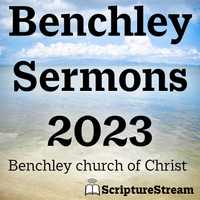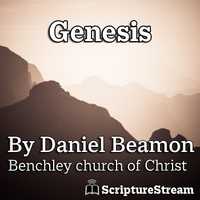Acts 11
- Acts 11:21 – They turned to the Lord. Compare Acts 26:17-18; I Thessalonians 1:9. Turning to God involves serving Him (and repenting).
- Acts 11:23 – Barnabas saw the grace of God – how the church was growing and prospering.
- Acts 11:28 – This famine is recorded in history.
- Acts 11:29 – Relief was sent specifically to the needy brethren – not to all people in the region.
Acts 12
- These events took place roughly 44 AD, about 14 years after the events of Acts 2.
- Acts 12:1-2 – Two martyrs are mentioned by name in the first twelve chapters of Acts: Stephen and James. We don’t know how many more Christians were killed by Paul before his conversion.
- Acts 12:3 – Herod imprisoned Christians to please others. We must be careful not to do wrong just to please others.
- Acts 12:11 – Compare Psalms 126.
- Acts 12:13 – Compare Peter’s state in John 18. God has truly brought Peter out of prison. He is a changed man now.
- Acts 12:17 – Catholics sometimes argue that this “other place” is Rome where Peter became the first Pope. But Peter is again in Jerusalem in Acts 15:7 and we have no evidence in the New Testament of Peter taking any sort of position like this. Peter might have left to an undisclosed location as a strategic move because he knew the persecution was pointed at him at this point, so he left to take it away from the other Christians.


